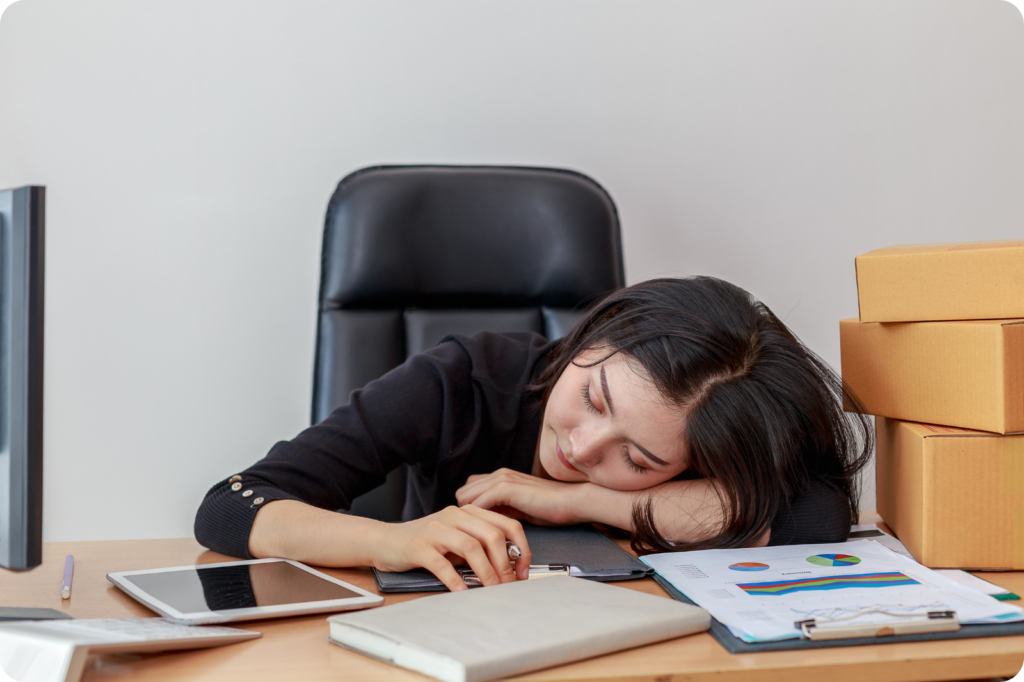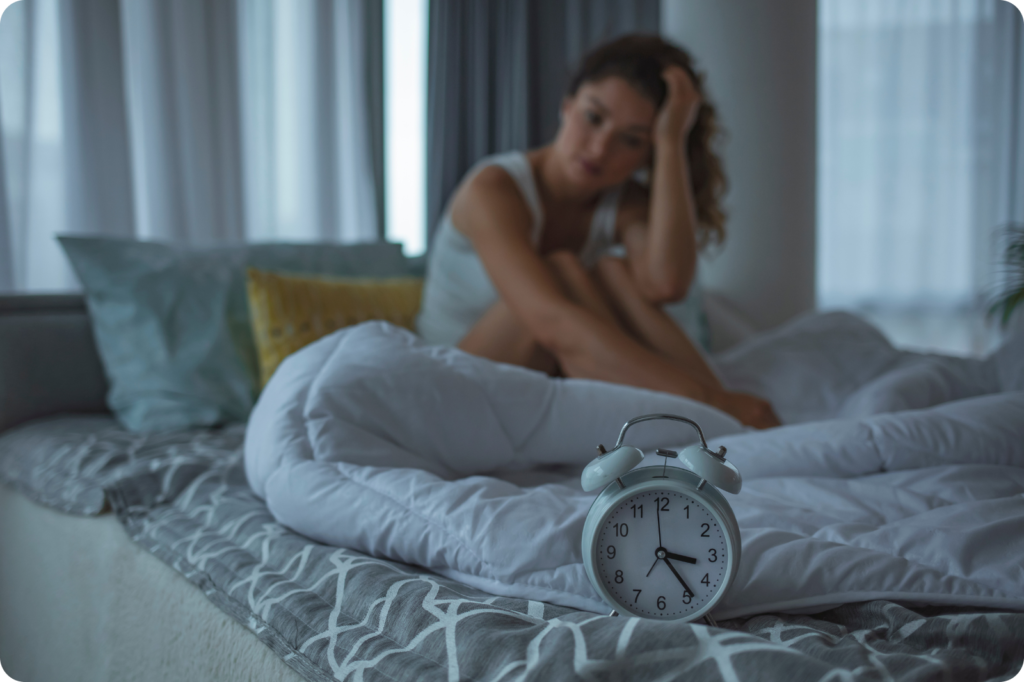Sleep Hygiene 101: Your Ultimate Handbook for Quality Sleep
"
In this article, we’ll dive into the whats, hows, and whys of sleep hygiene and explore practical ways to enhance it.
Let's dive right in..
Ever wondered why some nights you wake up feeling groggy and exhausted despite getting a seemingly full night’s sleep?
Well, chances are you might be neglecting your sleep hygiene.
Sleep hygiene refers to the set of habits and practices that contribute to a good night’s sleep and overall sleep quality.
It’s like giving your body and mind the royal treatment they deserve. So, why is sleep hygiene important?
What are the signs that your sleep hygiene might need a tune-up? And most importantly, how can you improve it?
Worry not cause we at The One Liner have the perfect guide for Sleep Hygiene.
Let's get started!
Why is Sleep Hygiene Important?
1. Quality Sleep
Sleep hygiene practices ensure that you get high-quality sleep. By following a consistent routine and implementing healthy habits, you can improve the duration and depth of your sleep.
This leads to feeling more refreshed and revitalised upon waking up.
2. Energy and Alertness
Adequate sleep obtained through good sleep hygiene promotes increased energy levels and daytime alertness. When you consistently get enough restful sleep, you’re less likely to experience daytime fatigue, drowsiness, or difficulty concentrating.
3. Physical Health
Sleep hygiene plays a vital role in maintaining good physical health. It contributes to the
- Proper functioning of the immune system,
- Regulates hormone levels, and
- Supports overall bodily functions.
Sufficient sleep is associated with a lower risk of developing chronic conditions such as obesity, diabetes, and cardiovascular diseases.

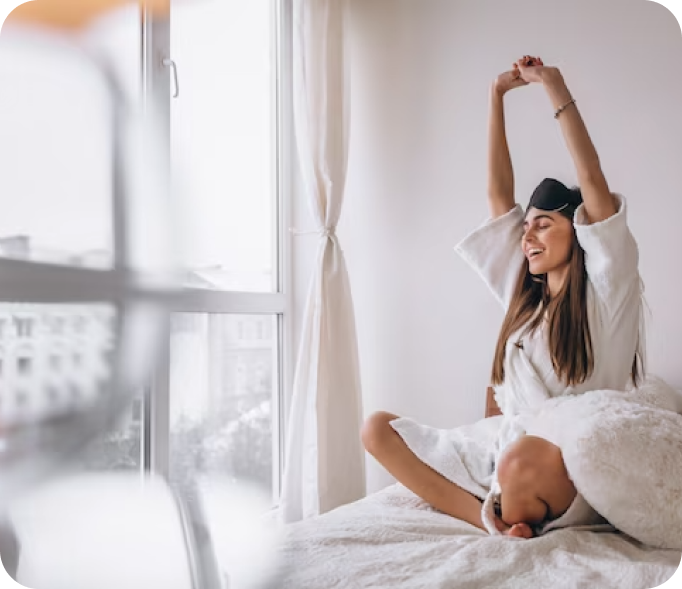
4. Mental Well-being
Sleep hygiene significantly impacts mental well-being. A lack of sleep or poor sleep quality can lead to increased irritability, mood swings, anxiety, and even symptoms of depression.
On the other hand,
Prioritising good sleep through proper sleep hygiene can enhance
- Your mood,
- Emotional resilience, and
- Overall mental health.
5. Cognitive Performance
Restorative sleep obtained through sleep hygiene practices positively influences cognitive functions such as
- Memory,
- Attention, and
- Problem-solving abilities.
It improves learning and helps consolidate information, allowing you to perform better academically or professionally.
6. Stress Management
Sleep hygiene acts as a natural stress management tool. When you establish a regular sleep routine and create a sleep-conducive environment, it helps reduce stress levels and promotes relaxation.
Quality sleep enables you to wake up feeling refreshed and better equipped to handle daily challenges.
What are the 3 Signs of Poor Sleep Hygiene?
1. Trouble Falling and Staying Asleep
If you often lie in bed, tossing and turning, desperately trying to fall asleep, it could be a sign of poor sleep hygiene.
Difficulty falling asleep can be caused by a variety of factors, but one common culprit is an irregular sleep schedule.
Going to bed at different times each night confuses your body’s internal clock, making it harder to drift off.
Additionally, engaging in stimulating activities before bedtime, such as scrolling through your phone or watching intense TV shows, can make it challenging for your mind to wind down.
2. Feeling Tired and Fatigued During the Day
Do you often feel like a walking zombie during the day, reaching for that extra cup of coffee just to stay awake?
This daytime fatigue can be a telltale sign that your sleep hygiene needs some attention.
Waking up multiple times during the night or experiencing poor sleep quality can leave you feeling exhausted and irritable throughout the day.
Inconsistent sleep patterns, excessive caffeine intake, or a sleep environment that’s not conducive to rest can all contribute to this perpetual fatigue.
3. Dependence on Alarm Clocks to Wake Up
Do you find it impossible to wake up in the morning without the piercing sound of an alarm clock?
While alarm clocks are a handy tool, relying on them exclusively to wake up may indicate an underlying issue with your sleep hygiene.
Waking up feeling refreshed and alert should ideally be a natural process guided by your body’s internal clock.
If you consistently need an alarm to jolt you out of bed, it could be a sign that you’re not getting enough sleep or that your sleep schedule is inconsistent.
8 Ways to Improve Sleep Hygiene
1. Stick to a Consistent Sleep Schedule
Imagine your sleep pattern as a well-choreographed dance routine. Just like dancers need rhythm, your body craves consistency.
Establishing a regular sleep schedule means going to bed and waking up at the same time every day, even on weekends.
By doing so, you synchronize your body’s internal clock, known as the circadian rhythm. This rhythm helps regulate your sleep-wake cycle and promotes better sleep quality.
2. Create a Sleep-Friendly Environment
A peaceful and cozy space is what you want your sleep environment to be like.
Keep your bedroom cool, dark, and quiet. Invest in a comfortable mattress and pillows that suit your preferences.
Banish electronic devices from the bedroom and say farewell to those tempting late-night scrolling sessions.
Opt for soothing colors and calming scents to set the stage for a restful night’s sleep.
3. Develop a Relaxing Bedtime Routine
Ever heard of warm milk or a good book before bed? Well, they’re not just old grandma tales!
A relaxing bedtime routine signals your brain and body that it’s time to wind down. Engage in activities that help you relax, such as taking a warm bath, reading a book, practicing mindfulness or meditation, or listening to calming music.
Steer clear of stimulating activities or stressful thoughts before hitting the hay, as they can interfere with your ability to fall asleep peacefully.
Ads Below
4. Limit Stimulants and Napping
Who doesn’t love a good cup of coffee or a little afternoon siesta?
While they have their perks, too much of a good thing can disrupt your sleep. Limit your caffeine intake, especially in the afternoon and evening.
Remember, caffeine is found in various beverages and even chocolate, so keep an eye on your overall consumption. Additionally, avoid long naps during the day, as they can make it harder to fall asleep at night.
If you really need a nap, try to keep it short (around 20-30 minutes) and before 3 PM.
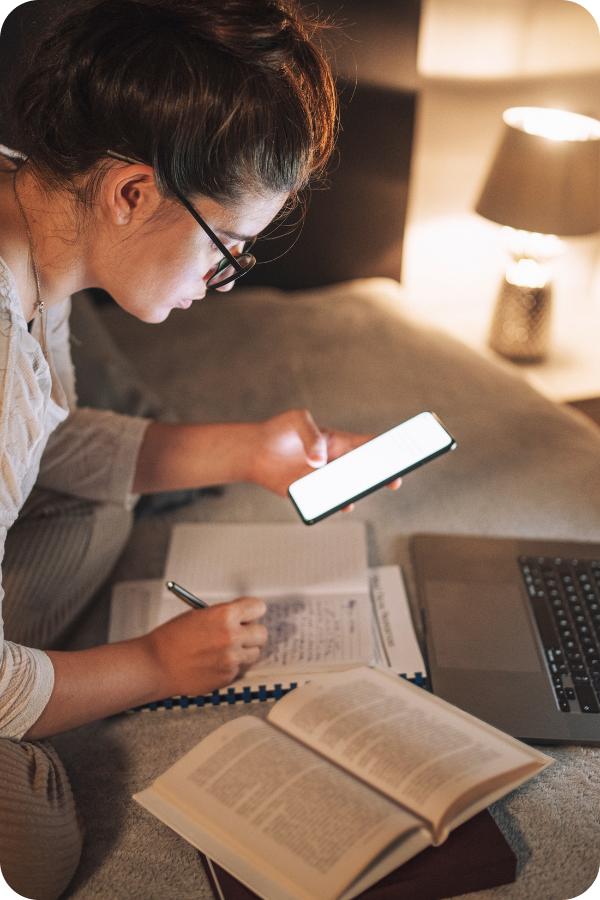

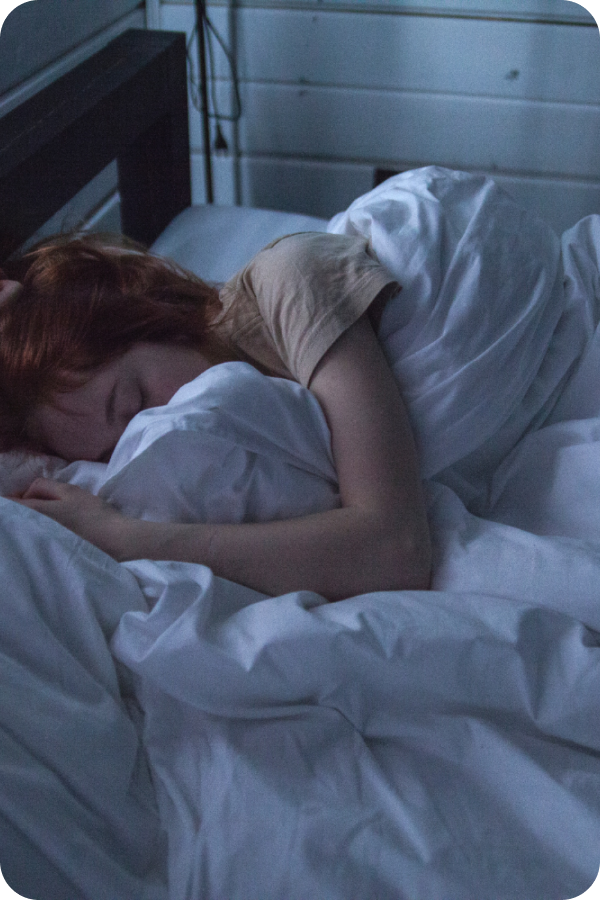
5. Say No to Late-Night Snacking
Eating heavy, greasy, or spicy meals before bed can cause discomfort, indigestion, and even acid reflux, which can make it difficult to sleep peacefully.
It’s advisable to finish your last meal or snack at least a couple of hours before bedtime.
If you feel hungry, opt for light, sleep-friendly snacks such as a small bowl of cereal, a banana, a handful of almonds, or a cup of herbal tea like chamomile, which can have relaxing properties.
6. Keep Technology Out of Bed
The blue light emitted by electronic devices, such as smartphones, tablets, and laptops, can suppress the production of melatonin, the hormone that helps regulate sleep.
Ideally, avoid using screens at least 30 minutes before bed. Instead, replace screen time with activities like reading a book, having a calming conversation with a loved one, or practicing relaxation techniques.
If you must use electronic devices, consider using blue light filters or wearing blue light-blocking glasses.
7. Get Regular Exercise
Physical activity has numerous benefits, and one of them is promoting better sleep.
Engaging in regular exercise during the day, such as walking, jogging, swimming, or cycling, can help regulate your sleep-wake cycle and increase the amount of deep sleep you experience at night.
However, try to avoid vigorous workouts close to bedtime, as the adrenaline rush can make it harder to fall asleep. Aim for moderate exercise earlier in the day for the best sleep-enhancing effects.
8. Monitor Your Sleep with Smart Devices
While not essential for improving sleep hygiene, using these devices can help you understand your sleep patterns and identify areas for improvement.
Many smart devices can track your sleep duration and sleep stages (like REM and deep sleep) and even detect snoring or disruptions during the night.
By reviewing this data, you can gain a better understanding of your sleep quality and make adjustments to your sleep routine if needed.
But, sometimes, the basics of good sleep hygiene don’t bring the desired results. It might be a case of some sleep disorders.
Let’s dive deeper into some common Sleep Problems.
What are the 5 common Sleep Problems?
1. Insomnia
Insomnia can manifest in different ways, like trouble falling asleep, waking up too early, or even repeatedly waking up during the night.
Stress, anxiety, an irregular sleep schedule, or certain medications can contribute to this sleep thief.
2. Sleep Apnea
This condition interrupts your breathing during sleep, causing brief awakenings and oxygen deprivation. Not only can it disrupt your own sleep, but it can also turn your partner into a sleep-deprived grump.
Obesity, smoking, and certain anatomical factors can contribute to sleep apnea.
3. Restless Leg Syndrome (RLS)
Imagine a tingling, crawling, or irresistible urge to move your legs just as you’re settling down for the night. That’s restless leg syndrome (RLS) for you!
This peculiar condition can disrupt your sleep, making it hard to find comfort and relaxation.
Though its exact cause is still a mystery, factors like iron deficiency, pregnancy, and certain medications can trigger RLS symptoms.
Ads Below
4. Narcolepsy
If you find yourself struggling to stay awake during the day, no matter how much sleep you’ve had the night before, you might be dealing with narcolepsy.
This neurological disorder disrupts the brain’s ability to regulate sleep-wake cycles, leading to excessive daytime sleepiness and sudden episodes of falling asleep.
5. Sleepwalking
Sleepwalking is a parasomnia disorder that causes people to perform complex activities while asleep, usually during the deeper stages of sleep.
Stress, sleep deprivation, and genetics can contribute to sleepwalking.
5 Advanced Strategies to Tackle Sleep Conditions
When the basics of good sleep hygiene don't bring the desired results, it's time to dive deeper into alternative strategies to tackle these sleep conditions.
1. Relaxation Techniques
- Progressive muscle relaxation: Start by tensing and then releasing each muscle group in your body, promoting physical and mental relaxation.
- Guided imagery: Close your eyes and visualize calming and serene scenes, engaging your senses to transport your mind to a peaceful place.
- Aromatherapy: Experiment with essential oils known for their relaxation properties, such as lavender or chamomile, by using them in a diffuser or adding a few drops to your pillow.
2. Cognitive Techniques
- Journaling: Write down any worries, thoughts, or to-do lists before bed to clear your mind and allow yourself to let go of concerns until the next day.
- Thought-stopping : When intrusive thoughts arise, mentally shout "stop" and replace them with a soothing image or phrase.
- Cognitive restructuring : Challenge and reframe negative thoughts or beliefs about sleep, replacing them with positive and realistic affirmations.
3. Natural Remedies
- Herbal teas : Chamomile, valerian root, passionflower, or lemon balm tea are known for their relaxing properties and can be consumed before bed.
- Melatonin : Consider melatonin supplements, a hormone naturally produced by the body that helps regulate sleep-wake cycles. Consult a healthcare professional for appropriate dosage and guidance.
- White noise and nature sounds : Create a soothing auditory environment by using white noise machines or playing calming nature sounds like rainfall or ocean waves.
Ads Below
4. Alternative Therapies
- Acupuncture : This ancient practice involves the insertion of thin needles into specific points on the body, potentially promoting relaxation and addressing sleep disturbances.
- Massage therapy : Gentle, relaxing massages can alleviate muscle tension, promote circulation, and induce a state of deep relaxation.
- Mind-body practices : Engage in activities like yoga, tai chi, or qigong, which combine gentle movements, breath control, and mindfulness to enhance relaxation and improve sleep.
5. Therapies for Sleep Disorders
- Continuous Positive Airway Pressure (CPAP) therapy : A common treatment for sleep apnea, CPAP involves wearing a mask that delivers a steady stream of air to keep the airways open during sleep.
- Cognitive Behavioral Therapy for Insomnia (CBT-I) : This therapy helps identify and address the underlying factors contributing to insomnia, such as negative thought patterns or behaviors.
- Medication : In certain cases, prescription medications may be recommended to manage sleep disorders. Consult with a healthcare professional for guidance and appropriate use.
Final Thoughts
In a nutshell
In conclusion, prioritizing and maintaining good sleep hygiene is vital for our overall well-being and daily functioning.
By paying attention to the quality of our sleep, we can significantly improve our physical health, mental clarity, and emotional stability.
Remember, poor sleep hygiene can manifest itself in various ways, such as difficulty falling asleep, daytime fatigue, and restless nights. However, there are numerous simple yet effective steps we can take to enhance our sleep hygiene.
Additionally, for those grappling with more complex sleep conditions, advanced strategies and professional guidance are available to help tackle the underlying issues.
So, let's embrace the power of good sleep hygiene and make restful nights a regular occurrence!
Subscribe to new post
The One Liner
Useful Links
Order Related Queries
Useful Links
Order Related Queries

